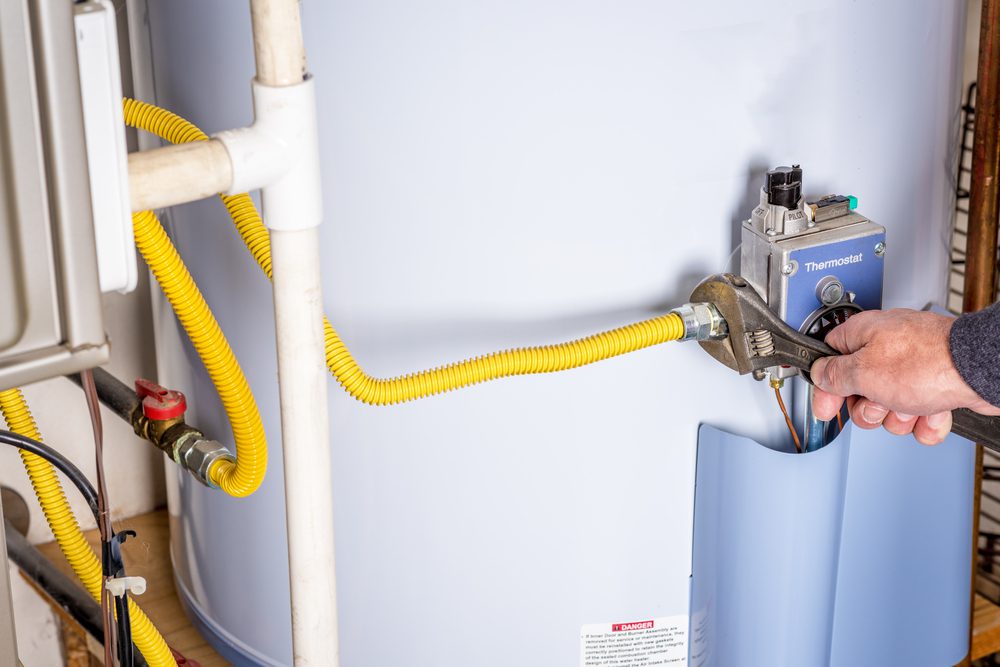Addressing Common Water Heater Issues
Addressing Common Water Heater Issues
Blog Article
Everybody is bound to have his or her own opinion with regards to Water Heater Repair and Troubleshooting.

Imagine starting your day without your regular warm shower. That currently sets a poor tone for the rest of your day.
Every home requires a dependable water heater, however just a couple of understand how to take care of one. One very easy means to maintain your hot water heater in leading shape is to check for mistakes frequently and repair them as quickly as they appear.
Bear in mind to turn off your water heater before sniffing about for mistakes. These are the water heater mistakes you are more than likely to run into.
Water also warm or too cool
Every hot water heater has a thermostat that figures out exactly how warm the water obtains. If the water entering your house is also hot despite setting a convenient maximum temperature, your thermostat could be malfunctioning.
On the other hand, as well cold water may be due to a fallen short thermostat, a damaged circuit, or incorrect gas circulation. As an example, if you utilize a gas water heater with a broken pilot burner, you would get cold water, even if the thermostat is in excellent condition. For electric heaters, a blown fuse may be the culprit.
Not enough warm water
Hot water heater come in several sizes, relying on your warm water needs. If you run out of warm water before everyone has had a bathroom, your hot water heater is also small for your family size. You ought to consider mounting a larger hot water heater container or opting for a tankless water heater, which occupies much less room and is extra durable.
Strange noises
There go to least 5 type of noises you can speak with a water heater, yet the most usual interpretation is that it's time for the hot water heater to retire.
First of all, you must be familiar with the typical appears a water heater makes. An electric heating unit might appear different from a gas-powered one.
Popping or banging noises normally suggest there is a slab of sediment in your tanks, and it's time to clean it out. On the other hand, whistling or hissing sounds may simply be your valves allowing some pressure off.
Water leakages
Leakages might originate from pipes, water links, valves, or in the worst-case circumstance, the container itself. Over time, water will wear away the storage tank, and also discover its escape. If this takes place, you require to replace your water heater asap.
Nonetheless, before your adjustment your entire container, make certain that all pipes are in place and that each valve works completely. If you still require assistance determining a leak, call your plumber.
Rust-colored water
Rust-colored water suggests one of your hot water heater parts is corroded. Maybe the anode pole, or the tank itself. Your plumber will have the ability to recognize which it is.
Warm water
No matter exactly how high you set the thermostat, you will not obtain any kind of warm water out of a heater well past its prime. A water heater's efficiency may decrease with time.
You will also get warm water if your pipelines have a cross link. This indicates that when you switch on a tap, warm water from the heating system streams in together with routine, cold water. A cross connection is very easy to area. If your hot water faucets still run after shutting the hot water heater valves, you have a cross link.
Discoloured Water
Rust is a major source of dirty or discoloured water. Corrosion within the water tank or a stopping working anode pole could trigger this discolouration. The anode rod protects the tank from rusting on the within and need to be examined yearly. Without a rod or an effectively functioning anode pole, the warm water swiftly rusts inside the container. Contact a professional hot water heater professional to figure out if replacing the anode pole will deal with the trouble; otherwise, change your hot water heater.
Verdict
Preferably, your water heater can last 10 years before you require an adjustment. Nonetheless, after the 10-year mark, you may experience any of these mistakes a lot more consistently. Now, you ought to add a brand-new water heater to your spending plan.
How To Troubleshoot 3 Common Water Heater Problems in Twin Cities
The Water Heater Is Leaking
A leaky cold water inlet valve A loose pipe fitting A leaky temperature and pressure relief valve A corroded anode rod A cracked tank Turn Off Your Water Heater:
Shut off your gas water heater by turning the gas valve on the unit to the “OFF” position. Shut off your electric water by switching its power off at your electrical panel. Look for a two-pole breaker labeled “water heater” and turn it to the “OFF” position. Move the ball valve connected to the water heater to be perpendicular to the piping at a 90° angle. Look for the Leak:
Depending on whether the water is coming from the tank's top or bottom, you’ll want to look for the leak in different locations.
If the leak comes from the top of the tank, carefully look for water escaping from the cold water inlet valve or loose pipe fittings. Rusted hot and cold water valves can have loose connections with the tank, with water leaking out of them.
https://mspplumbingheatingair.com/blog/how-to-troubleshoot-3-common-water-heater-problems
I recently found that article about Water Heater Repair and Troubleshooting when surfing the internet. Do you know somebody who is fascinated about the niche? Feel free to share it. Thanks a lot for going through it.
For best results, ring! Report this page